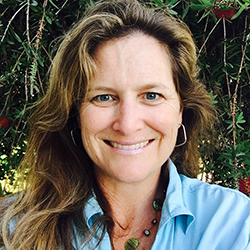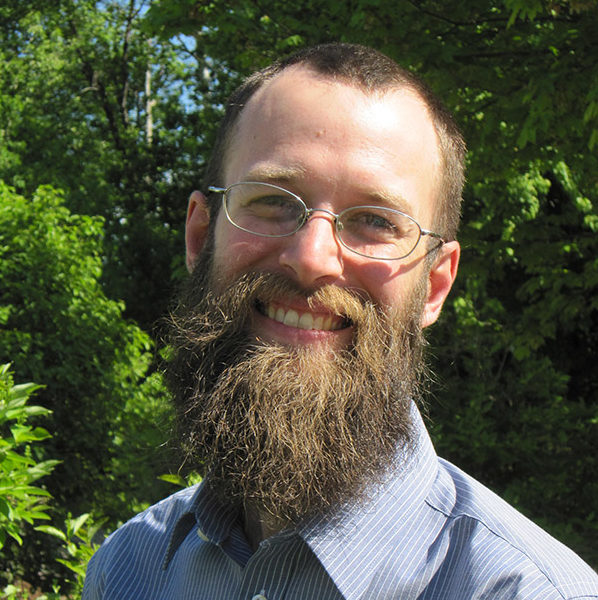MS in RMA, Sustainable Development and Climate Change
Become an Innovative Climate and Sustainability Leader
The Sustainable Development and Climate Change (SDCC) is a trans-disciplinary program of study that prepares students to take a leadership role in managing and coordinating the required resources to address the complex environmental challenges in the context of a changing climate.
Now, with just 30 credits, you can complete your science master’s degree while maintaining a work-life balance and fostering personal resilience.
This degree is offered by AU New England.
Program Overview
The Sustainable Development and Climate Change (SDCC) concentration has been designed with flexibility in mind. Students will have access to one-on-one mentorship, and coursework can be tailored to this concentration to meet their professional and personal career goals. The concentration has fewer required courses and allows for more autonomy in selecting the courses to complete the degree.
With this 30-credit graduate program, students can complete the curriculum as quickly as five (5) semesters; however, this is dependent on outside employment and family obligations. In this case, an extended program can be designed in conjunction with your advisor. Students develop the specific skills to address multi-issue, multi-stakeholder environmental problems. This includes managing the necessary resources, such as expertise, networks, money, communication, and time, within the regulatory realities of protecting, conserving, and restoring the environment.
Degree Requirements
Under the Sustainable Development and Climate Change concentration, at least thirty (30) graduate credits are required to be awarded a Master of Science in Resource Management and Administration with a concentration in Sustainable Development and Climate Change.
Course Delivery
The curriculum is a combination of online courses and one short summer 5-day residency.
Opportunity for Additional Certifications
In addition to acquiring a master of Science in Resource Management and Administration degree with a concentration in Sustainable Development and Climate Change, many RMA students have availed themselves of the opportunity to supplement their degree with additional professional designations like the Climate Resilience Certificate for Professionals.
Contact the program director to learn about recent changes to the program.

Christa Daniels, Ph.D., AICP (she/hers)
Program Director, Core Faculty
Environmental Studies & Sustainability
Centers and Resources


The motto still stands, the world needs us now, and the philosophy that every person can and should make a difference was empowering.
Emliy Hague ’05
Assistant Director of Land Conservation
Additional Program Details
- Think holistically and become a critical thought leader.
- Advance belonging, equity, diversity, and inclusion in the field you are working in.
- Problem solve by collecting, analyzing, and interpreting data
- Design and apply an interactive evaluation process
- Transfer knowledge and facilitate two-way engagement strategies to build political will and public support
- Effectively manage complex projects and associated budgets and timelines.
- Develop and implement organizational sustainable practices.
- Facilitate and work with diverse teams.
- Inspire people to action with leadership skills.
…to Make Their Communities, Organizations, and Themselves Equitable, Climate Resilient and Regenerative
You can find them in,
- Municipal Governments
- Regional Governments & Agencies
- Federal Agencies
- B-Corps
- Businesses
- International Governments
- Private Consulting Firms
- Environmental NGO’s
In roles such as,
- Resource Manager
- City Planner
- State Environmental Bureau Manager
- Senior Environmental Scientist
- Director of Economic Development
- Director of Community Development
- Sustainability Consultant
- Climate Resilience Coordinator
- Environmental Non-Profit Director
- Transportation Director
- Director of Sustainable Housing
- Senior Managers for Green Buildings & GI
- Director of Land Conservation
- Entrepreneur
Analyze an environmental problem from a holistic perspective, including all parts and relationships.
Envision equitable, sustainable, and climate-resilient future states in contrast to the ‘do-nothing’ scenarios.
Construct various scenarios about how the problem might play out in the future.
Design, create, and implement strategies and solutions to create an equitable, sustainable, and climate-resilient future.
Collaborate and partner with researchers from other disciplines and stakeholders in various organizations: government, businesses, and civil society.
Faculty Spotlights

Running Grass
Faculty, Senior Lecturer

Dawn Murray, PhD
Core Faculty

Jason Rhoades, PhD
Interim PhD Program Director, Core Faculty

Gopal Krishnamurthy, PhD
Interim Chair
Admissions
How to Apply
- Complete the online admissions application, including:
- Essay questions, admissions and program-specific
- Resume/curriculum vitae (CV)
- Non-refundable $50 application fee
- Submit official transcripts from all colleges or universities where you earned a degree or certificate.
- email transcripts to [email protected], or
- mail to Office of Admissions Antioch University New England 40 Avon Street Keene NH 04341-3516
- Two letters of recommendation are required from people who are in a position to evaluate your professional or academic work. The person making the recommendation may not be related to you.
- There are additional requirements for International applicants and applicants without a Bachelor’s degree
- Interview with a faculty member of the department to which you seek entry if selected. This can be in person, by phone, or via Skype.
- Master’s and Certificate Programs do not require the GRE or any other standardized test for admissions. We consider all of your application materials and evaluate your academic potential in a variety of ways.
Official transcripts should be emailed to [email protected] or mailed to Office of Admissions Antioch University New England 40 Avon Street Keene, New Hampshire 03431-3516 All application materials submitted become part of an applicant’s file and cannot be returned.
Application Deadlines
| Program | Term | Deadline |
|---|---|---|
| MS in Resource Management and Administration | Fall | July 15 |
| Spring | December 1 | |
| Summer | April 1 |
Tuition & Financial Aid
A college education is an investment in your future. Let us help you understand the costs and explore the resources available to help make your college education even more affordable. The majority of AUNE students finance their education through some form of financial aid. You may not be sure which federal, state, public, and private aid packages – such as loans, scholarships, and grants – are right for you. Our staff is here to help you so you can focus on what’s most important: beginning your academic program at AUNE.

Start your Antioch Journey
Take your next step – talk to our admissions team to find the right program for you.


